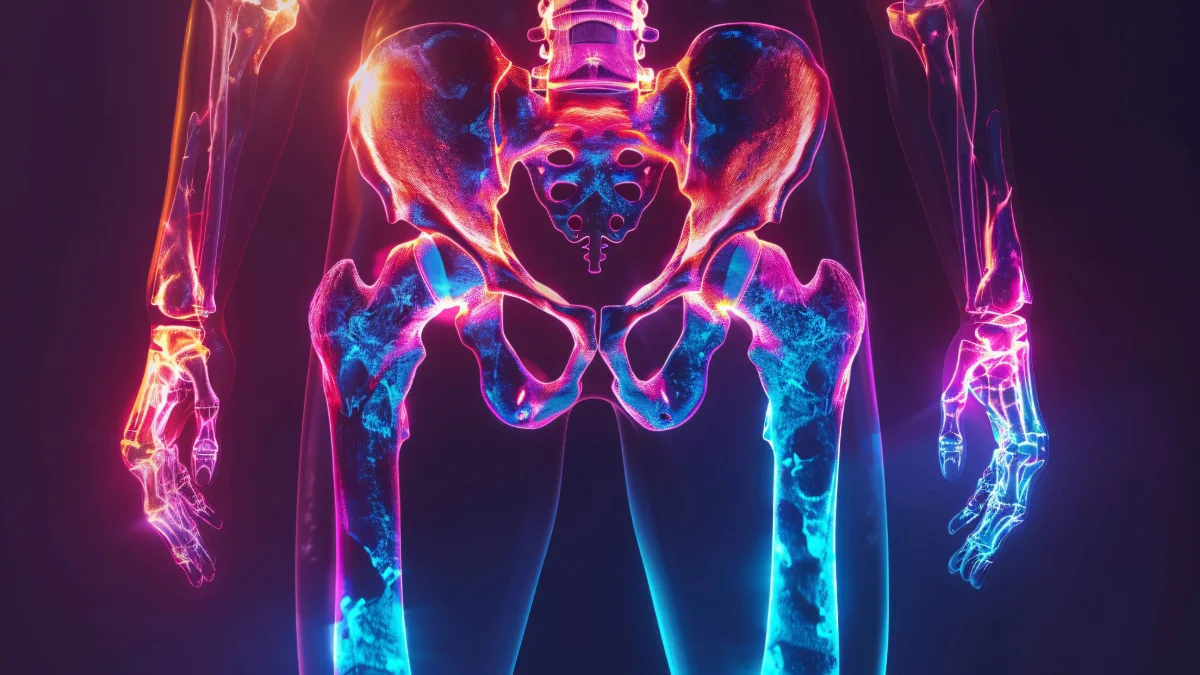Bone cancer treatment in Turkey encompasses a spectrum of services from early diagnosis to advanced treatments. Bone cancer refers to various malignancies that develop within the bones. These cancer cells can damage healthy bone tissue as they proliferate. The kind of cell and tissue that the cancer starts in determines how bone cancer is classified.
Types of Bone Cancer
Bone cancer can be primarily categorized into two types:
- Primary Bone Malignancies: These tumours arise directly from the bone itself.
- Secondary Bone Malignancies (Metastatic): These cancers spread to the bones from other regions of the body, such as the breast, prostate, and lungs.
Forms of Bone Cancer
- Osteosarcoma: This common type originates in the cells that produce bone growth. It is most commonly identified in teenagers and adolescents, usually at the ends of long bones such as the arms and legs.
- Ewing Sarcoma: Named after the physician who first identified it, this type of cancer can start in the bones or the adjacent soft tissues. It generally affects long bones such as the legs, hips, ribs, and shoulder blades.
- Chondrosarcoma: This type begins in the cartilage, the connective tissue that facilitates bone and joint movement. It affects the arm, leg, or pelvic bones and is more prevalent in adults.
- Chordoma: a rare cancer that mostly affects men and older persons, usually beginning at the base of the skull or spine.
Factors Contributing to Bone Cancer
Risk Factors
When cells in the bone expand and divide uncontrolled, a tumor known as bone cancer develops. Even though the exact causes are frequently unknown, several variables might increase the risk:
- Genetic Factors: Some genetic disorders, such as Li-Fraumeni syndrome and hereditary retinoblastoma, are linked to an increased risk of bone cancer.
- Radiation Exposure: High doses of radiation, from environmental sources or cancer treatments, can increase the risk of bone cancer.
- Previous Cancer Treatments: Individuals who have undergone radiation therapy or certain chemotherapy treatments may be more susceptible.
- Other Factors: Exposure to chemicals such as vinyl chloride and arsenic, metal implants, chronic bone injuries, and certain genetic illnesses like Paget’s disease may also contribute.
Symptoms of Bone Cancer
Symptoms can vary based on the type, location, and stage of the disease. Common signs include:
- Pain and Discomfort: Persistent pain in the bones that worsens at night or during physical activities.
- Swelling or Lump: Swelling and tenderness near the affected bone, often accompanied by a visible or palpable lump.
- Weakness or Fractures: The weakened bone might fracture or break with minor trauma or no obvious injury.
- Restricted Range of Motion: Difficulty in moving the affected limb, especially if the tumour is near a joint.
- Exhaustion and Weight Loss: In advanced stages, symptoms like fatigue, weakness, and unexplained weight loss may occur.
- Bone Discomfort or Sensations: Unusual sensations like pressure, tingling, or numbness may arise due to the tumour’s impact on adjacent nerves.
It’s essential to visit a healthcare provider for accurate diagnosis and treatment if any of these symptoms persist.
Diagnosis of Bone Cancer
Diagnosing bone cancer involves imaging tests and biopsies to pinpoint the cancer type and extent.
Imaging Tests
- X-ray
- Magnetic Resonance Imaging (MRI)
- Computed Tomography (CT) Scan
- Positron Emission Tomography (PET) Scan
- Bone Scan
Biopsy
- Needle Biopsy: Involves inserting a thin needle through the skin to collect tissue samples.
- Surgical Biopsy: The surgeon makes an incision to remove a part of the tumour for testing.
Stages of Bone Cancer
Staging determines how advanced the cancer is. It involves:
- Cancer location
- Size and growth rate
- Number of affected bones
- Spread to lymph nodes or other body parts
Stages range from 1 (small, slow-growing cancer) to 4 (cancer that has spread extensively).
Treatment Options for Bone Cancer in Turkey
Surgery
Surgical treatment aims to remove the cancerous bone. Types of surgery include:
- Limb-Sparing Surgery: Removing the tumour while preserving the limb, followed by reconstruction using prosthetics or bone grafts.
- Amputation: When limb-sparing surgery is not possible or the tumour has progressed far, it may occasionally be required.
Chemotherapy
Chemotherapy involves using drugs to kill cancer cells. Before surgery to reduce tumour size, following surgery to stop recurrence, or as palliative therapy, it can be given.
Radiation Therapy
Radiation therapy uses high-energy beams to eradicate cancer cells. It may be used alone or in conjunction with surgery and chemotherapy.
Mifamurtide
Mifamurtide is an immune macrophage stimulant used in treating high-grade osteosarcomas. It works by encouraging the immune system to produce specialized cells to target and kill cancer cells. Typically administered after surgery in combination with chemotherapy, it helps reduce the chance of cancer recurrence. The treatment involves administering the drug intravenously over an hour, with sessions typically set twice a week for 12 weeks, and then once a week for the subsequent 24 weeks.
Why Choose Bone Cancer Treatment in Turkey?
Quality Healthcare Infrastructure
Turkey has significantly invested in its healthcare infrastructure, resulting in modern clinics and hospitals equipped with state-of-the-art technology for cancer detection, treatment, and surgery.
Expert Medical Personnel
Turkey is home to numerous highly skilled and experienced medical professionals, including radiologists, orthopaedic surgeons, pathologists, and oncologists. These specialists adhere to international standards, providing top-notch care and treatments.
Advanced Treatment Options
Turkish medical facilities provide a variety of modern therapies, including immunotherapy, targeted therapy, chemotherapy, radiation therapy, and surgical techniques. They actively participate in clinical research and keep up with the most recent advances in cancer.
Affordability
Compared to Western countries, medical procedures in Turkey are more cost-effective while maintaining high-quality care. Turkey’s price makes it an appealing location for those looking for efficient and cost-effective treatment.
Choosing Avicenna International Hospital
At Avicenna International Hospital, we provide cutting-edge treatment for bone cancer with a patient-centric approach. Our multidisciplinary team of specialists ensures that every patient receives personalized care tailored to their unique needs. Contact us for a consultation to explore your treatment options and receive the best medical care available.
Yes, Turkey has emerged as a popular destination for medical tourism, particularly for cancer treatment. The country boasts advanced medical facilities, internationally trained doctors, and reasonable costs compared to many Western countries. Turkey’s strategic location also provides easy access for patients from Europe, Asia, and the Middle East.
The most effective treatment for bone cancer typically involves a combination of approaches, including:
Surgery: Limb-sparing surgery to remove the cancerous section and reconstruct the affected bone, or amputation in some cases.
Chemotherapy: Used before or after surgery to shrink tumours and prevent a recurrence.
Radiation Therapy: Employed alone or in conjunction with other treatments to eradicate cancer cells.
The cost of bone cancer treatment in Turkey is generally more affordable compared to many Western countries. Factors that influence the cost include:
Type and stage of the cancer
Specific treatments required (surgery, chemotherapy, radiation therapy)
Duration of treatment
Accommodations and other associated expenses
On average, the cost of bone cancer treatment in Turkey can range from 20,000 to 50,000, which is significantly lower than the costs in the United States or Europe.







